| ||
| ||
| ||
| ||
| ||
| ||
| ||
| ||
| ||
| ||
| ||
| ||
| ||
|
Enter Headline | ||
|
CONTACT Nancy Hook 10829 Old Raleigh Wilson Rd. Middlesex, NC 27557 252-235-2545  E-mail
E-mail
Copyright 2002-2024 Hook's K9 Training Nancy R. Hook All Rights Reserved |
| Why Train Your Dog? |
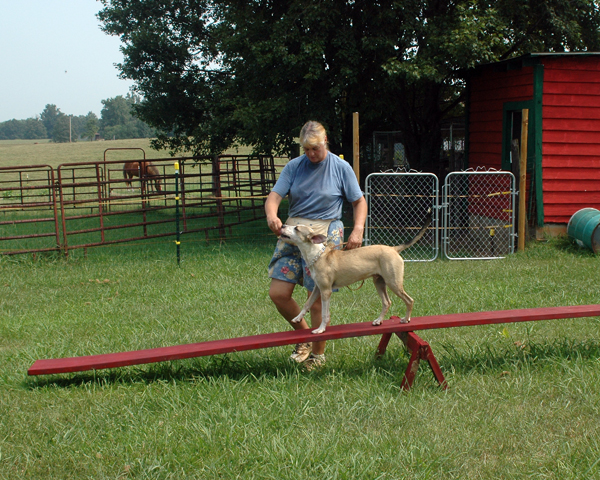
Nancy working Bonnie
Why Train Your Dog?
Training, whether for obedience or any type of canine job, makes your dog easier to live with and develops a close bond of understanding. An untrained dog develops many unpleasant and some downright dangerous behaviors. Dogs are pack animals, so instinctively crave a pack structure. Your family is your dog's pack. Someone has to be in charge, and if you don't step up to the plate, your dog will be forced to. Most dogs want someone else to be in charge (you!) and display behavior problems if pushed into the leadership role that doesn't fit.
Training your dog asserts your authority as pack leader, and assures your dog of his place in the pack.
A dog who believes that he is the pack leader (and if he believes it, it is so!) will insist on his way, even to the point of correcting (biting) anyone who goes against his rules. In the wild, this is imperative for pack cohesion. There is a natural hierarchy, with each dog knowing his place and his function, and if the structure is not adhered to, no dog could hunt, reproduce, or have a territory in which to do these things. This need for pack structure is hardwired into the dog: it is basic survival. But in our world, YOU need to be the pack leader, the "alpha" dog.
I put it to my students another way: How many of your dogs pay their own bills?
This usually makes them laugh, but the question is designed to help them look at their dogs in a different light. This pet dog has no responsibility in this pack other than to bring pleasure to his humans. If the dog is causing problems, he's not doing his job! This dog has a safe and comfortable home, food handed to him (most often way too much), toys to chew on and play with, and human hands with fingers and opposable thumbs that pet and rub and scratch him where it feels best. All we really want in return is a dog who will walk on a leash without having us feel like he's training for the Iditarod, to come when we call him, and to keep his teeth and paws to himself. Not so much to ask for the "Life of Riley"!
Now that we've talked about the unfair advantages the average untrained dog might enjoy, let's address some more serious side affects of not training.
A dog with poor manners is a nuisance to his family and his neighbors. Because of his poor manners, his world begins to shrink. He is no fun to walk, so the walks first diminish, then disappear. With no outlet for his energy, he jumps on people and destroys things in the house, so he is put outside. He barks out of frustration and loneliness, so he is taken to the dog pound. Haven't you seen it happen time and time again?
A dog who is allowed to develop more dangerous behavior problems such as aggression is a serious liability, and may have to be put down.
Not only is he capable of doing physical harm to humans and other animals, even to the point of death (as you read about in the papers), but he is even more frequently the cause of severe trauma to the wallet! People are sued every day in this litigation-happy country for just about anything you can imagine a dog doing; from merely being a nuisance to destruction of property to biting someone, sometimes with deadly consequences. Don't let this be something you become familiar with!
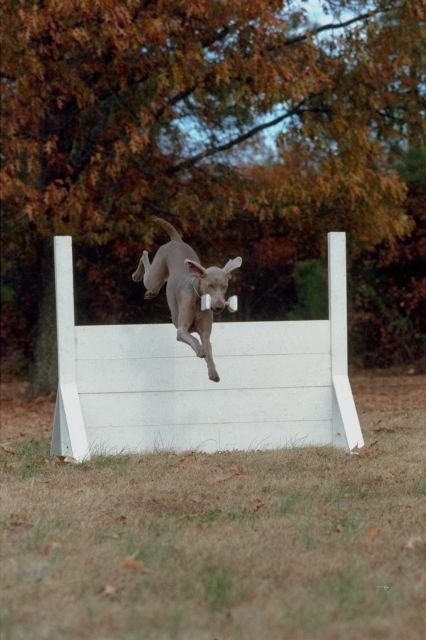
A busy dog is a happy dog! Give your dog an outlet for his energy.
If you don't, he will find one himself, and it won't be carrying dumbells over a jump!

We can help!
Call us at
252-235-2545!
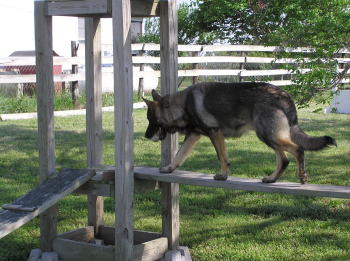
Do yourself and your dog a favor. Train your dog.
As Nike says, just do it!
Your dog will be happier, your neighbors will be happier, and you certainly will be, with all the pleasure and peace of mind it will bring!
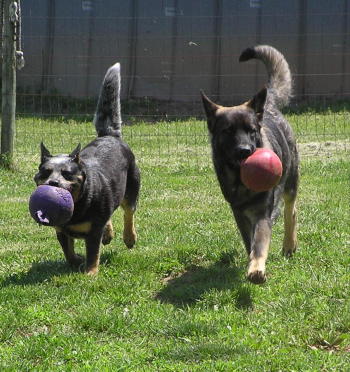
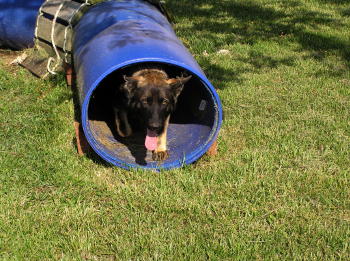
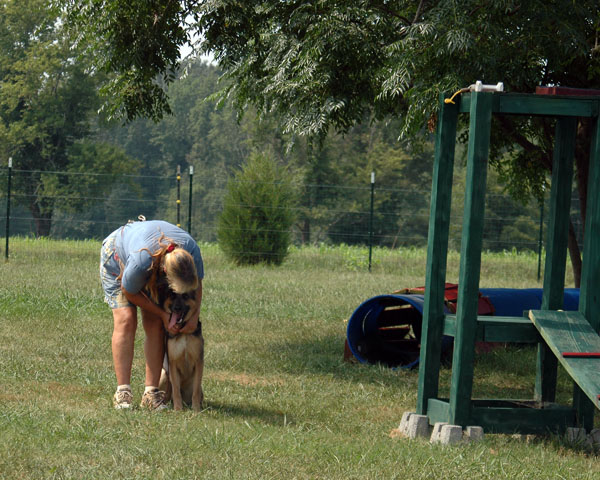
Clear, consistent direction and positive reinforcement builds confidence in your dog!
READING:
Many people have asked me to recommend books on dog training. To tell you the truth, the more recent books I've seen are full of touchy-feely, politically correct garbage that if followed, will create an entitled monster of a dog. One book, that was sent to me as a joke, actually instructed the gentle reader to massage a dog who is misbehaving! Now, good grief, how often would you misbehave if you got a massage for it??
The list that follows has some of the books I've found valuable.
Look--I try to be consistent, but I have to admit that two of the books are new ones by Temple Grandin.
Okay, it's humanly impossible to be 100% consistent, and contrary to rumor, I am purebred human.
"Animals in Translation" and "Animals Make Us Human" both by Temple Grandin.
"Don't Shoot The Dog" and "On Behavior" both by Karen Pryor.
"Dog Psychology: The Basis of Dog Training" by Leon F. Whitney, DVM.
"How To Be Your Dog's Best Friend" and "The Art of Raising a Puppy", both by the Monks of New Skete.
"How To Raise a Puppy You Can Live With" by Rutherford and Neill.
(I consider this the bible of puppy raising.)
"Surviving Your Dog's Adolescence" and everything else by Carol Lea Benjamin.
Obviously this is an incomplete list of good dog books, but it's a start.